Description
Goddess Lakshmi – Tanjore Painting 22K Gold Is A Classical South Indian Art Developed In The Late 16th Century In Thanjavur Also Known As Tanjore In Tamilnadu South Indian State. These Tanjore Paintings Evoke A Sense Of Class And Timelessness With Their Alluring Illustrations Of Puranic Scenes. This Ancient Art Form Traces Its Origin To Tanjavur, Capital Of The Erstwhile Chola Empire. Tanjore Art Takes Its Origin From The Murals Of The Vijayanagara Period (1500-1600 AD) Acquired Its Robust Forms, Architectural Details And Vibrant Colors In This Period.
Maratha Rule In The Next Two Centuries(1600 AD -1800 AD) Brought A Distinctive Style Change To The Thanjavur Paintings. Royal Maratha Artists Combined The Existing Mural Style With Amazing Details Characterized By The Exquisite Workmanship Of Precious Stones And Gold Leaves.
Tanjore Paintings Was Practiced By Two Main Communities Namely – The Rajus Of Tanjore & Trichy, The Naidus Of Madurai.With The Decline Of Dynastic Rule, The Artists (Rajus), Divided Into 3 Groups One Heading To Vuyaioor, The Second Group To Mysore, And The Third Stayed On At Tanjore.
The Styles Developed Were Slightly Different From Each Other. The Emphasis At Tanjore Was On Studded Gems & Gold Leaves. At Vuyaioor Importance Was On The Decorative Garland. In Mysore, The Emphasis Was On Intricate Painting. The Direct Impact On Tanjore Art Begins With The Stationing Of The British Garrison In Thanjavur In 177
Tanjore Art Can Be Characterized By Rich, Flat And Vivid Colors. Simple Iconic Composition, Use Of Glittering 22carat Gold Foils Overlaid In The Painting Work And The Tanjore Paintings Are Decorated Mostly Using Semi-Precious Stones To Bring Out The Glow To Highlight Ornaments, Structures Etc. Usages Of 22 Carat Gold And Real Tanjore Stones Give A Glowing Radiance To The Painting And The Shine Of The Gold Leaves Lasts Forever.

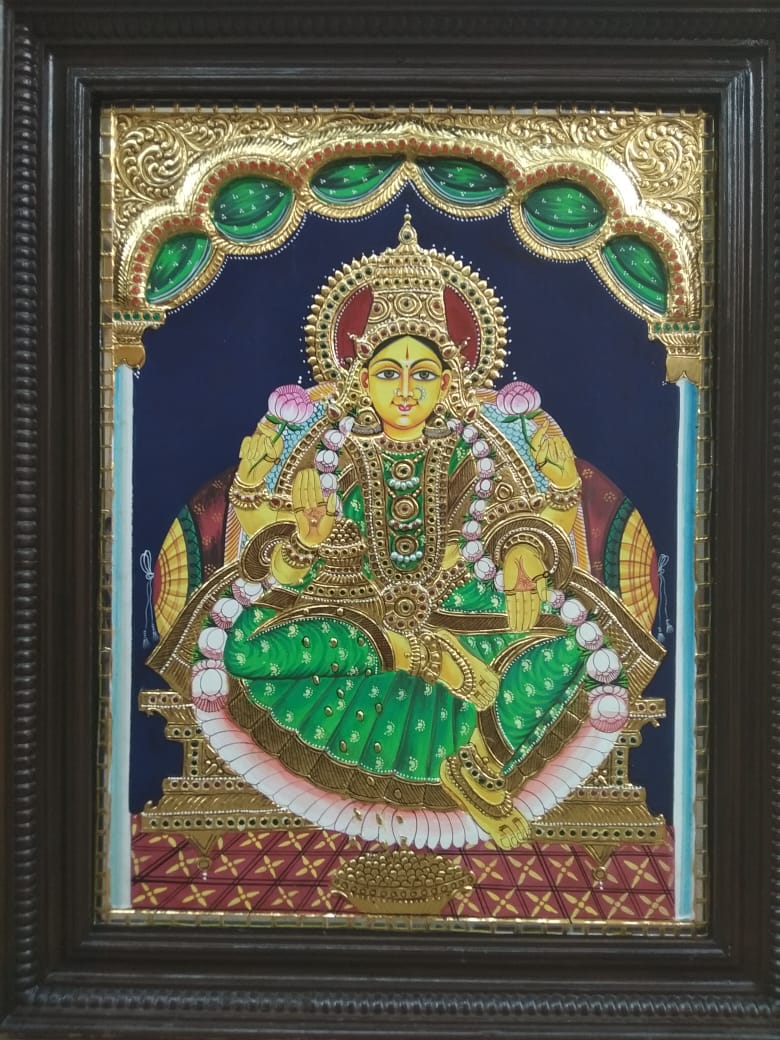
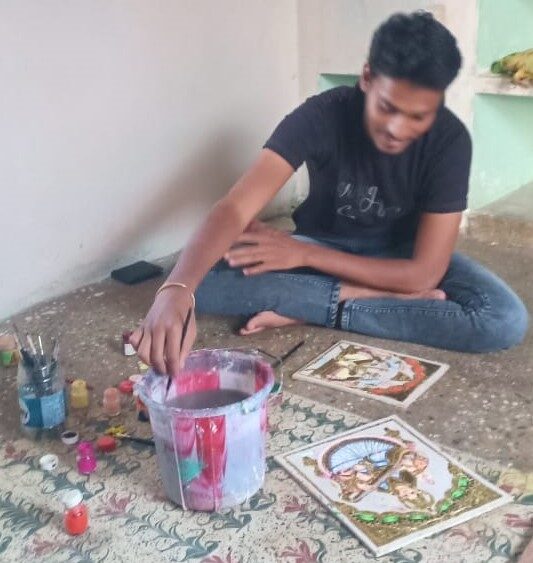
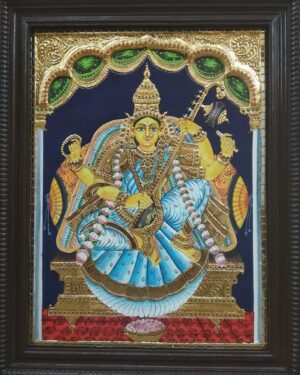
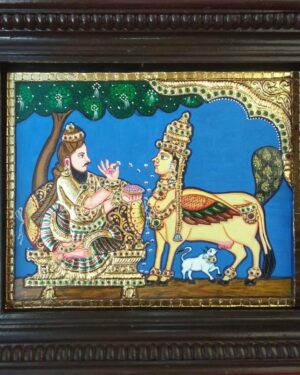
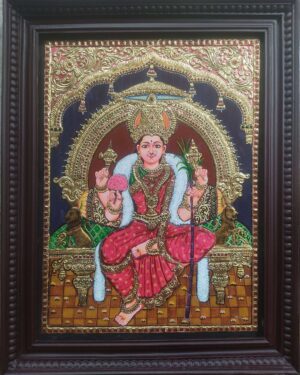
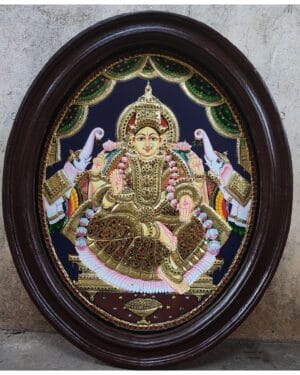
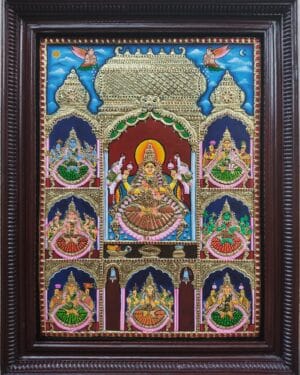
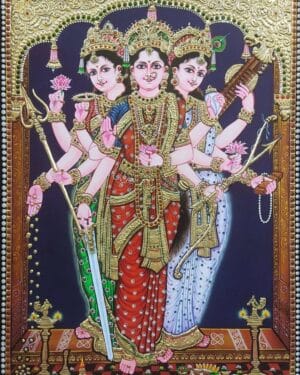
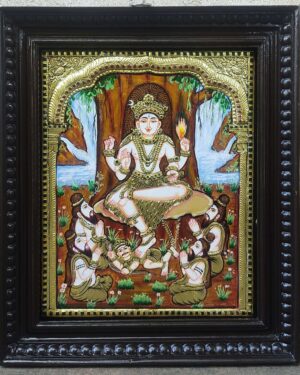
![Lord Venkatesha [Test]](https://indianfolkart.org/wp-content/uploads/2020/11/TNJ-PAINT-7-1-300x375.jpeg)
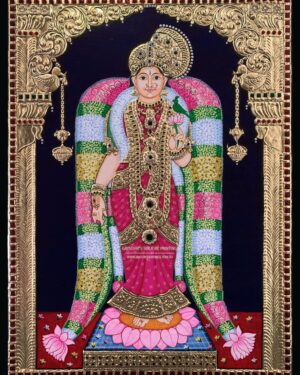
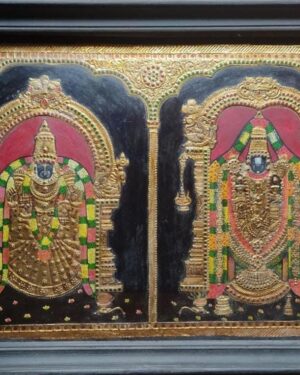
Reviews
There are no reviews yet.